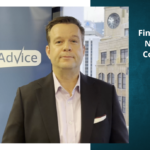Over the phone and online insurance deals make it easy to buy insurance……but there are some pitfalls.
You know those daily deal websites? Now even insurance is being offered cheaply on them. So it may make you wonder whether you may as well grab one of these deals, rather than organising to meet with an adviser. In this article we take a look at why you should at least consider engaging an adviser to help you with your insurance.
An investment in the financial well-being of you and you family, insurance is a long-term expense which over the years will amount to many thousands of dollars for most families. If you want to make sure your insurance will work for you when it’s needed, it’s definitely worth getting an expert to help you. Here are some of the keys benefits you can expect from engaging a professional insurance adviser.
Cover structure
There are a number of interrelated insurance products available to consumers which kick in at different times and which help to support you financially when longer term health or disability issues arise. Understanding the nature of these will help you to develop a programme that manages your risk. Even for the average family, the issues can get quite complicated and getting it wrong can have serious financial implications.
There are many questions to consider to make sure you get the right structure. For example, how are the family best protected from unexpected health and disability issues? How much cover and what types of cover should you consider? (Even within particular cover types there are variations). How do the various covers work together to achieve the desired outcomes?
A professional adviser will be able to assess your situation, evaluate your risks and tailor a cost-effective integrated insurance programme which will work when you need it.
Underwriting negotiation
There are many situations where previous or potential health issues can either compromise your ability to obtain cover at standard rates or result in limitations or exclusions on the cover. Sometimes the underwriter may refuse cover for particular conditions or refuse cover altogether. Your insurance adviser, as a result of their relationship with insurance underwriters they work with, are often able to negotiate better terms (lower premiums or removal of cover limitations) than you would be able to on your own. We know of many examples where advisers have been able to arrange cover which would otherwise have been declined or ‘loaded’ had the adviser not intervened.
Claims support
You’ve just been given the worst news of your life – you have a potentially terminal condition which requires immediate treatment including surgery. It will take you out of work for at least six months, possibly longer. At that point, the last thing you will want to do is work through the paperwork and process involved in getting a claim paid. The process can be incredibly stressful during an already stressful time for you and your family. This is where the real value of engaging an adviser comes into play. Your adviser will manage the claim process for you, prepare the paperwork, gather the necessary medical records and arrange certificates from your medical practitioners. They will negotiate on your behalf and do their best to smooth and fast-track payment of a claim at a time when you need to focus on your health.
Ownership structures
If you were to fall under a bus tomorrow, you’d expect your life insurance to be paid to your family pretty quickly, wouldn’t you? If you owned the policy in your own name you may well find that proceeds from a life policy won’t be paid to your beneficiaries for many months. That’s because the proceeds will likely end up as part of your estate to be distributed following issue of probate which typically takes six months or more.
Getting ownership right for your situation is really important. Is it best to own your life cover in your own name? Jointly with your partner? Or should it be owned by the family trust? How does second marriage or a relationship breakdown affect ownership? In many cases, effective life cover should have different ownership to disability insurance. Getting ownership right is key to ensuring that a claim is paid to the right people, and your insurance adviser will make sure that this happens by advising on appropriate ownership structures for you and your family’s situation.
Estate planning guidance
We recently heard of a case where an entire estate was handed out to the mother of a deceased person’s ex-wife. This happened because the deceased hadn’t changed their will following separation. The legal effect of a relationship separation on a will is that the provisions of the will continue with one exception – the ex-partner is removed as a beneficiary.
While an insurance adviser is not an expert in estate planning, they will be able to provide general advice about your estate planning needs and identify potential ‘red flags’ in your current set-up. They will also work with your legal advisers to make sure that your estate planning structures are implemented properly.
Policy wording
If you’ve ever taken the time to read an insurance policy, you’ll know that it can be pretty hard work. You’ll also probably need to reach for an insurance dictionary or medical encyclopaedia to make sense of much of the content. To save you the effort, your adviser makes it their business to understand these documents and they are able to interpret it for you. They are also able to use that knowledge when negotiating on your behalf with the insurer.
Knowledge
We hear time and time again of situations where advisers have identified claim entitlements that the client was unaware of. A case in point; I was having coffee with an adviser friend not long ago and he told me about a recent meeting he’d had with a client who casually mentioned that he’d broken his arm earlier that year. Well, the adviser knew that the client’s trauma insurance contained a provision for partial claim in the event of a temporary loss of limb function. Following that meeting the adviser arranged a claim of $12,000 which was promptly paid by the insurance company. His client would never have received this money without his expert knowledge.
Reviews
It’s so important to have regular reviews to make sure your insurance programme remains relevant as your life changes. Too often we meet people who set up their insurance programme 10 or more years ago but their lives have changed a lot since that time. For example, they may have bought a new house, had kids, got married, separated or divorced, left employment or set up a business. Almost every important life event warrants a review of your insurance programme. A professional insurance adviser will help you with regular annual reminders and offers of review. In addition, many policies have time-based exclusions or conditions which require you to contact the insurance company once the exclusion period has expired in order for the exclusion to be removed from the policy. An adviser will ensure that time-based exclusions or conditions are removed as soon as it’s possible.
To sum up
Today’s insurance adviser is a long way away from the insurance salespeople of 20 years ago. Today’s adviser is a professional who adds significant additional value for clients who are looking for a cost-effective tailored insurance programme which will work effectively when it’s most needed – at claim time.
Advisors will tailor an insurance programme for your needs, will look at ownership structures and how various insurance types work together, will act for you at claim time, and will also negotiate terms on your behalf and ensure your estate-planning provisions are consistent with your needs.
If you are at all unsure about your insurance needs, get in touch with a professional adviser. Don’t wait until claim time – it’s too late then to make changes.
IMPORTANT PLEASE READ: This article is for information purposes only. Its content is intended to be of a general nature, does not take into account your financial situation or goals, and is not a personalised financial adviser service under the Financial Advisers Act 2008. It is recommended you seek advice from a financial adviser which takes into account your individual circumstances before you acquire a financial product. If you wish to consult a Financial Adviser, please use our “find an adviser” database.








